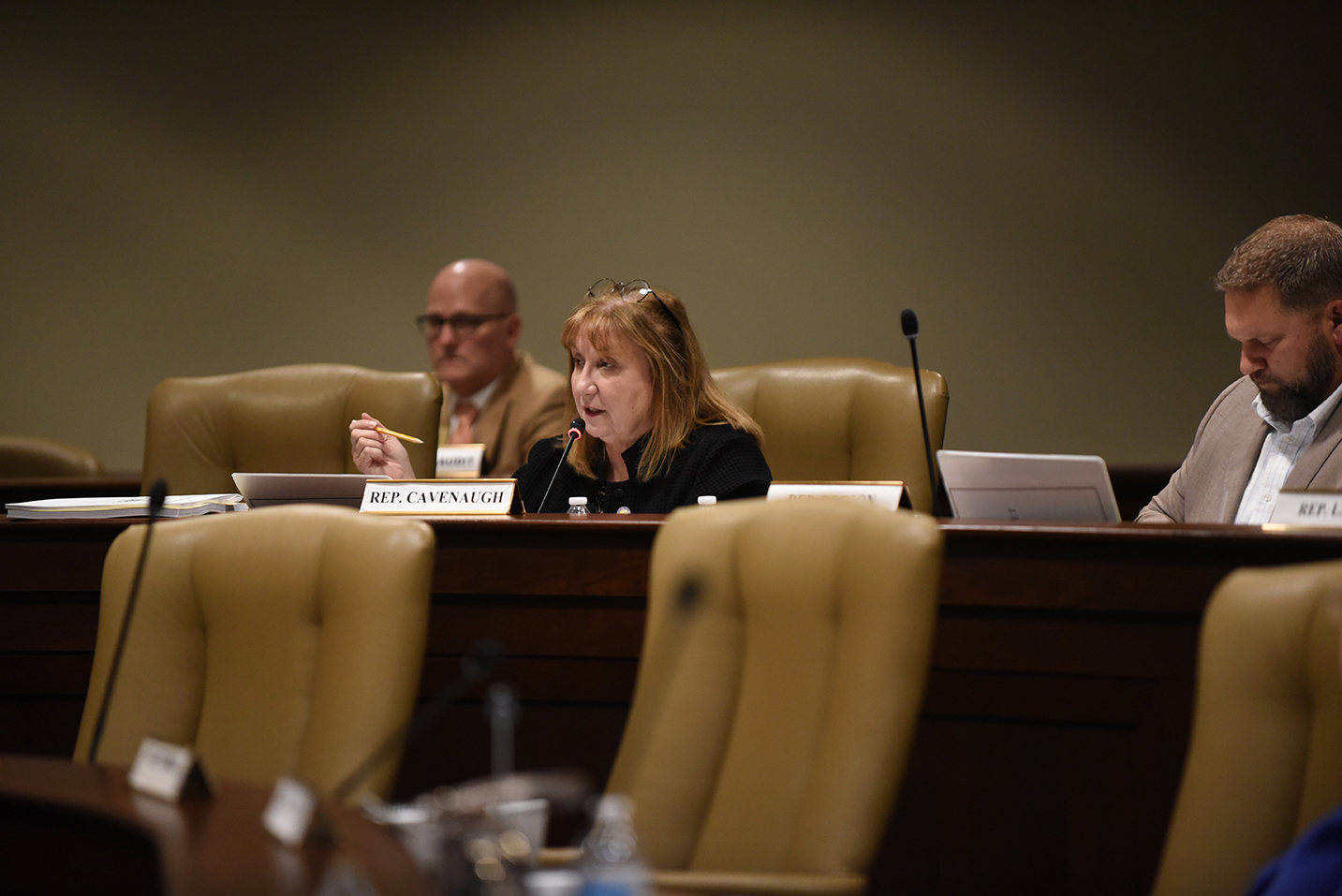Arkansas Game and Fish Commission officials have identified a target of about $15 million more a year that they want to raise through a restructuring of license fees, commission Director Austin Booth told state lawmakers Wednesday.
The aim would be to raise about $12 million more a year from licenses of Arkansas residents and about $3 million more a year from licenses of out-of-state residents, he said in response to questions by state Sen. Ricky Hill, R-Cabot.
"But the exact license structure, we have not finalized that yet," Booth said during the Legislative Council and Joint Budget Committee's hearing on the commission's proposed budget for fiscal 2024 and fiscal 2025.
The current fiscal year 2023 started July 1 and ends June 30, 2023.
"We know what the revenue need is, but we are still working through how that falls out amongst the current products that we have," he said.
The restructuring of license fees is aimed at simplifying and consolidating hunting and fishing license options for the user and structuring the fee around consumption and giving the commission more information to serve Arkansans, Booth said.
Afterward, he said in a written statement, commission staff will continue to work with the Legislature, commissioners and constituents to develop the best model for license restructuring between now and the 2023 regular session, which begins Jan. 9.
The commission's staff will present an informational overview of the potential license restructuring no later than the January commission meeting, Booth said.
"AGFC will look to bring the best model in the form of a bill during the 2023 General Assembly," he said in his written statement. "Once the license restructuring is approved by the Legislature, AGFC Commissioners would have the opportunity to vote them into place with at least a 30-day notice to the public and an additional 30-day public comment period."
Upon being signed into law and approved by the Game and Fish Commission, the restructuring could go into effect no later than July 1, 2024, Booth said.
The commission has collected a five-year average of $28.2 million in license fees and projects getting $27 million in license fees in fiscal 2024.
Booth told lawmakers the agency's target of $15 million a year in increased revenues through restructured licensing fees would help the commission with its loss of buying power through license fee revenues.
The commission's major funding sources include the state's conservation sales tax that fluctuates with the state's economy, certain federal funds and license fees, he said, and the agency's three-legged stool of funding sources needs to be solid to allow it to make long-term decisions.
The state's conservation sales tax has raised an average of $36 million a year for the commission over a five-year period and federal aid reimbursements have raised an average of $22 million a year over a five-year period.
Booth pointed out to state lawmakers that the last increase in the resident fishing license was in 1984 and the last hunting license increase was in the mid-1990s.
The resident fishing license fee is $10.50. The price of the resident sportsman's hunting license is $25.
Booth said increased license fee revenue would help the commission fund short-term capital projects to upgrade its infrastructure.
Most importantly, the increased revenue would allow the commission to provide more outdoor opportunities to Arkansans, including more hunting and fishing opportunities, more access in underserved areas, and more recreational shooting opportunities for archery, pistols and rifles, he said.
Booth said the agency also wants to make its wildlife management areas more inviting to people other than just fisherman and hunters, like gravel bike riders, bird watchers, paddlers and hikers and have them support conservation.
He said the commission doesn't plan to propose tripling the cost of resident fishing licenses to adjust for inflation since 1984.
"It will not be anything that extreme," Booth said.
In the 2021 regular session, measures to increase license fees, stamps and permits stalled in the Legislature.
In its budget manual, the commission said the license restructuring would bring Arkansans and the state's $9.7 billion outdoor recreation industry the following:
• The continued development of a Private Lands Division to provide private landowners habitat incentives and technical assistance.
• The continued development of a Recreational Shooting Division to increase public shooting access and deepen the connection between conservation and hunting.
• Addition of 5,000 acres of priority habitat and public access to the wildlife management area system.
• Renovation of three lakes and major habitat and fishing enhancements on 30 reservoirs.
• Renewed commitment to black bass anglers through tournament and stocking programs.
• Water quality projects on 200 miles of rivers and streams.
• Habitat restoration on 30,000 acres throughout Arkansas.
• Modernization of major commission infrastructure.
"Without the restructuring, however, the Commission will be forced to prioritize current readiness at the expense of the growth necessary to meet the desires of Arkansans," the commission said in its budget manual. "Instead, the Commission will first prioritize legacy maintenance of existing infrastructure and continued improvements to the Commission's IT and cyber security platforms. At best, failing to restructure preserves the agency's reactive posture."
In fiscal 2023, the commission's budget totals $166.2 million, including $149.2 million for operations, according to its budget manual. Funding sources include $75.6 million in fund balances, $41.8 million in conservation sales taxes, $29.8 million in largely license fee revenues and $26.1 million in federal revenues.
Afterward, Sen. Terry Rice, R-Waldron, said the proposed restructuring of the Game and Fish Commission's license fees "is going to have to be something in the middle.
"It may not be all they need," he said. "But you can't come back and do it every year either, so you got to get as big a bite as they feel like they can sell to the Legislature and to the public.
"If you price yourself out, you've got trouble with people ... in this next generation in supporting what they do," said Rice, who is a co-chairman of the Legislative Council,

